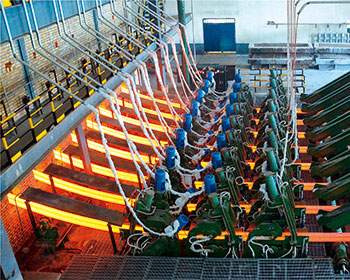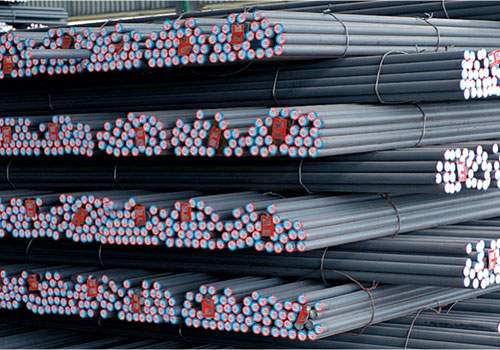
5 Essential Properties of 4140 Steel
Table of Contents
Introduction

4140 steel is a low-alloy steel that contains chromium, molybdenum, and carbon as its key alloying elements. This alloy is known for its toughness, high strength, and wear resistance. It is commonly used in applications such as automotive parts, machinery, tools, and heavy-duty components that require high mechanical properties and resistance to wear and fatigue.
Understanding the “Properties of 4140 Steel” is vital for selecting the right material for a specific application. Let’s take a closer look at five key properties that make 4140 steel an excellent choice for numerous industrial applications.
Henan Jiyuan Iron and Steel (Group) Co., Ltd. was founded in 1958. It has rich experience in production and research and development. It provides you with one-stop steel services and welcomes consultations from customers around the world.
High Strength and Hardness of 4140 Steel
One of the standout properties of 4140 steel is its high strength, which makes it ideal for applications that require the material to withstand heavy loads and resist deformation. The combination of chromium and molybdenum in the alloy improves its hardenability, enabling 4140 to achieve high hardness levels during heat treatment. This means that 4140 steel can maintain its strength under extreme conditions and over extended periods of use.
This property is especially beneficial for applications in aerospace, automotive, and heavy machinery industries, where parts are subjected to high levels of stress and wear.
Excellent Wear Resistance

The properties of 4140 steel also include exceptional wear resistance. The molybdenum in the alloy enhances the steel’s resistance to abrasive wear and galling, which makes it perfect for use in environments where parts are in constant contact or subject to heavy friction. This is a key reason why 4140 steel is commonly used in the manufacturing of gears, shafts, and other components that must endure repetitive wear.
In addition to its wear resistance, 4140 steel can also be carburized, improving its surface hardness and increasing its longevity, making it an excellent choice for parts exposed to high wear conditions.
Good Toughness and Ductility
Toughness refers to the ability of a material to absorb energy and deform without fracturing. 4140 steel exhibits good toughness, which ensures that it can handle shock loading and impacts without breaking or cracking. This is an essential property for parts used in demanding applications such as automotive suspension systems, heavy equipment, and construction machinery.
The ductility of 4140 steel also allows it to be formed into various shapes and sizes without losing its integrity, making it highly adaptable to different machining processes. Despite its hardness, 4140 steel maintains enough flexibility to avoid brittleness in critical parts.
Superior Fatigue Resistance
Fatigue resistance is another important property of 4140 steel. Parts that experience repeated loading cycles, such as axles, crankshafts, and other automotive components, require materials that can withstand these forces without failing. The properties of 4140 steel make it highly resistant to fatigue, which is critical in applications where parts undergo cyclical stress.
The combination of high strength, good toughness, and wear resistance makes 4140 steel highly reliable in components subject to repeated loading, thereby increasing the longevity of machinery and reducing the risk of failure.
4140 Steel’s Workability and Machinability

While 4140 steel is known for its toughness and strength, it is also relatively easy to work with compared to other high-strength materials. This makes it an attractive option for manufacturers looking to machine complex parts and components. The steel can be easily welded, drilled, and shaped using conventional machining methods. However, to achieve the best results, it is important to properly heat treat the steel before machining to optimize its properties.
Additionally, heat treatment processes such as annealing, normalizing, and quenching are used to modify the mechanical properties of 4140 steel, allowing manufacturers to tailor the material to specific requirements.
Table: Comparison of 4140 Steel’s Key Properties
| Property | 4140 Steel | General Steel Alloys | Stainless Steel |
|---|---|---|---|
| Tensile Strength | 850–1000 MPa | 400–600 MPa | 520–750 MPa |
| Hardness (HB) | 250–300 HB | 160–200 HB | 180–240 HB |
| Wear Resistance | High | Moderate | Moderate |
| Toughness | Good | Moderate | Moderate |
| Machinability | Good (after heat treatment) | Moderate | Good |
The table above compares 4140 steel’s key properties with other general steel alloys and stainless steel. As you can see, 4140 stands out for its high tensile strength and wear resistance, making it an excellent choice for demanding industrial applications.
Conclusion

The properties of 4140 steel make it a highly valuable material for industries that require components with high strength, toughness, and resistance to wear and fatigue. Its excellent workability and machinability also make it a preferred choice for manufacturers looking for a material that can be easily processed into complex shapes without compromising on performance.
From automotive to aerospace to heavy machinery, 4140 steel continues to prove itself as a reliable and versatile material. By understanding its key properties, you can make more informed decisions when selecting materials for your next project or manufacturing process.
FAQ
What are the main alloying elements in 4140 steel?
The main alloying elements in 4140 steel are chromium, molybdenum, and carbon. These elements provide 4140 steel with its enhanced strength, hardness, and wear resistance.
Can 4140 steel be welded?
Yes, 4140 steel can be welded. However, it is recommended to heat treat the material before and after welding to ensure that it maintains its strength and hardness. Proper welding techniques should also be used to avoid cracking.
How does 4140 steel compare to other alloys in terms of fatigue resistance?
4140 steel offers superior fatigue resistance compared to many other common alloys, especially those used in automotive and heavy-duty machinery applications. Its ability to withstand repeated stress cycles without failure is one of its key advantages.
Is 4140 steel suitable for use in high-temperature environments?
While 4140 steel performs well in many environments, its properties may degrade at extremely high temperatures. It is recommended to use alloys specifically designed for high-temperature applications when operating in such conditions.
What industries commonly use 4140 steel?
4140 steel is used in a variety of industries, including automotive, aerospace, construction, and heavy machinery. It is commonly found in parts such as gears, shafts, axles, and crankshafts, as well as other components that require high strength, wear resistance, and toughness.






